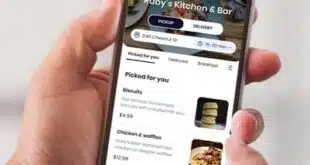Google Inc. may have just overhauled its nearly year-old mobile wallet, but it still appears to have plenty of plans for the near future of the product. For example, the Web giant is looking at adding a person-to-person payment capability and allowing users to save credentials other than payment cards, such as transit tickets, boarding passes, and personal IDs.
“We want to create a wallet that lets you leave your leather wallet at home,” said Robin Dua, head of product management for Google Wallet. Dua was speaking during a company developers’ conference held last week and recently posted to YouTube.
By allowing users to keep non-payment media such as boarding passes in the wallet, Google would be following in the footsteps of Apple Inc., which in June introduced a wallet application called Passbook that lets users store digital media such as tickets, coupons, proprietary cards, and boarding passes. Passbook is part of the company’s iOS 6 operating system, expected to become available this fall.
The P2P payments capability would take Google into a market that has attracted a wide range of startup companies along with established players such as Fiserv Inc. and major banks. Bank of America Corp., JPMorgan Chase & Co., and Wells Fargo & Co. have formed a P2P venture called clearXchange, for example. But Dua indicated that Google sees an opportunity it can’t afford to pass up. “A wallet wouldn’t be fully functional if it didn’t allow users to manage your currency and transact with end users as well,” he said. “Stay tuned. We recognize this as a need.”
Dua also outlined other initiatives that are or could be in the works soon. A key part of the Google Wallet revamp involved moving card credentials from the secure element of the handset to Google servers. Without going into detail, Dua said Google is looking to use this same cloud-based approach to help merchants create and manage their own loyalty programs.
In another context, he said Google may be adding more mobile carriers for the wallet, a move that would address a key weakness of the product. “We hope to announce partnerships soon,” he said. Only two carriers, Sprint and Virgin Mobile, support the wallet, though Virgin Mobile does so for just one of the eight devices that so far make the product available. The country’s three largest carriers—AT&T Mobility, T-Mobile USA, and Verizon Wireless—have instead supported their own wallet venture, Isis.
In related news, Apple this week was awarded a patent covering a system that would allow a consumer to use graphical elements on a mobile touch screen to control payments. Patent No. 8255323, entitled “Motion based payment confirmation,” could offer hints at how Apple will process mobile payments should it decide to enter the market, says the newsletter “Apple Insider.”
The patent, which Apple applied for Jan. 9, 2009, describes a system in which a user could initiate and confirm a payment on, say, a smart-phone screen by sliding or swiping a payment element, say a card graphic, to a “payment confirmation position,” which could be represented by the icon of a point-of-sale terminal. A variant of this design describes how the user could accomplish the same thing with motion, using the phone’s accelerometer.
The patent envisions payments to both merchants and other individuals. Interestingly, it also envisions a possible implementation using near-field communication (NFC) in the mobile device for close-range links to other NFC devices or to so-called smart tags. Whether Apple intends to incorporate NFC, a key mobile-payments technology that has been adopted by both Google and Isis, in the next version of the iconic iPhone, due out later this year, has been the subject of intense industry speculation.





